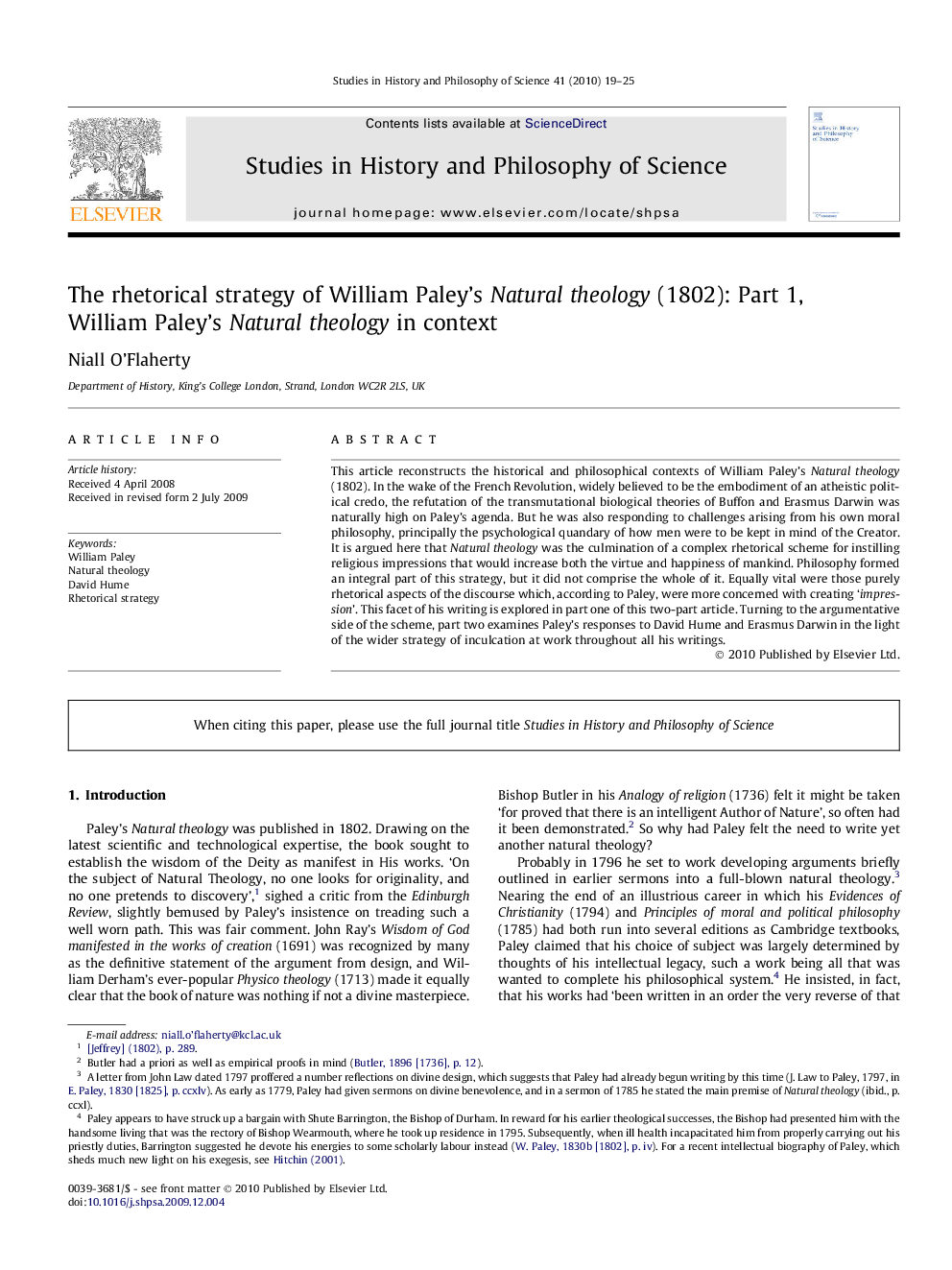| Article ID | Journal | Published Year | Pages | File Type |
|---|---|---|---|---|
| 1160639 | Studies in History and Philosophy of Science Part A | 2010 | 7 Pages |
This article reconstructs the historical and philosophical contexts of William Paley’s Natural theology (1802). In the wake of the French Revolution, widely believed to be the embodiment of an atheistic political credo, the refutation of the transmutational biological theories of Buffon and Erasmus Darwin was naturally high on Paley’s agenda. But he was also responding to challenges arising from his own moral philosophy, principally the psychological quandary of how men were to be kept in mind of the Creator. It is argued here that Natural theology was the culmination of a complex rhetorical scheme for instilling religious impressions that would increase both the virtue and happiness of mankind. Philosophy formed an integral part of this strategy, but it did not comprise the whole of it. Equally vital were those purely rhetorical aspects of the discourse which, according to Paley, were more concerned with creating ‘impression’. This facet of his writing is explored in part one of this two-part article. Turning to the argumentative side of the scheme, part two examines Paley’s responses to David Hume and Erasmus Darwin in the light of the wider strategy of inculcation at work throughout all his writings.
